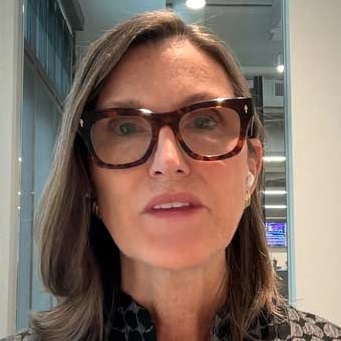Emerging markets significantly underperformed developed markets in 2013 on the back of concerns over slower growth and the tapering of the US Federal Reserve’s quantitative easing programme.
Thus far in 2014, emerging market equities have continued to be negatively affected by heightened investor concern over the likely direction of interest rates, as the Fed has continued to taper its bond purchases and in light of weaker economic newsflow out of China.
Over the last 12 months, the MSCI Emerging Market index has returned 11.8% in US dollar terms, while the MSCI World index for developed country stocks returned 21.6%. That said, throughout 2014 so far, there has been some dispersion between emerging market countries.
Eastern European shares are down significantly, while Asian shares have only declined slightly. Latin American shares have rebounded from initial falls, particularly in March, and are now only down modestly year-to-date.
Eastern Europe has remained under pressure amid heightened geopolitical tensions between Russia and Ukraine. The MSCI Russia index has dropped 19.9% year-to-date, as the US and Europe imposed sanctions on Russia, targeting companies and officials in President Putin’s inner circle following Russia’s annexation of the Crimea.
On the positive side, Turkish equities and the lira have rebounded from the recent sell-off, as the ruling AK Party’s decisive victory in local elections has been seen as a sign of political continuity.
In Asia, India and most of Southeast Asia, equity markets have performed strongly. Investor confidence in India and Indonesia has been restored after last year’s sharp sell-off, given the considerable improvement in their current accounts and the prospect of a fresh policy change after the elections.
The Philippines has maintained its strong run, boosted by positive economic data, while Thailand has proven to be resilient despite uncertainty in domestic politics and slowing economic growth.
On the contrary, Chinese equities have declined, as macro indicators for the first few months of the year have been weaker than expected, suggesting a renewed slowdown in the economy. Share prices in South Korea and Taiwan have been subdued due to mixed performance from the technology hardware sector.
Latin America has led regional performance year-to-date. The Brazilian market has bounced back strongly since March, fuelled by an improving trade balance and a positive shift in market sentiment regarding future economic policies.
With the October elections approaching, waning popularity for the current president, Dilma Rousseff, has spurred a market rally in the hope of a more market-friendly government under a new president or a move to more accommodative economic policies from President Rousseff.
Mexico, however, has been dragged down by modest 2013 economic growth and a weaker domestic consumption environment.
Overall, the market dynamics surrounding the ‘fragile five’ countries that are India, Brazil, South Africa, Indonesia and Turkey have shifted significantly from last year. The markets were hit particularly hard in 2013 due to their large current account deficits and reliance on external funding.
However, year-to-date, the ‘fragile five’ have rebounded, benefiting from policy actions to ease their economic imbalances, as well as hopes of reform progress with upcoming elections in all five countries.
This has impacted the performance of some of the bigger funds in the sector. Indeed, funds such as Aberdeen Emerging Markets and JPM Emerging Markets have historically favoured structural growth stories in the ‘fragile five’ countries on the view that companies faced with a more difficult business environment tended to be better run and have stronger balance sheets. This hurt in 2013 in the context of outflows and currency depreciation, although the funds bounced back strongly this year.
Obvious contenders for emerging market equity exposure are Morningstar OBSR Gold-rated Aberdeen and First State, which focus on large quality growth companies.
Expertise at running emerging market mandates has led them to consistently deliver top-quartile performance over most time periods. However, such popularity among investors has led to concerns over capacity and liquidity, resulting in soft closures.
There are a number of other strategies available for investors looking for emerging market equities exposure. We have a high regard for the Norwegian-domiciled Skagen Kon-Tiki, which is also rated Gold by us and won a Morningstar Fund Manager of the Year Award this year.
The fund features a strong team of four co-managers who work alongside Kristoffer Stensrud. Kon-Tiki’s managers have very few constraints, the most important being they must invest at least 50% of the fund’s assets in emerging markets.
Their opportunistic, contrarian approach leads them to hunt for securities they consider cheap and this often leads them to underfollowed or out-of-favour issues.
They use their flexibility to venture into developed markets but the focus of the fund is always in emerging issuers. Other large-cap funds, rated Bronze by Morningstar OBSR, include Fidelity Emerging Markets, JPM Emerging Markets, Lazard Emerging Markets, M&G Global Emerging Markets and Somerset Global Emerging Markets.
The emerging market small-cap sector is still relatively limited. Morningstar OBSR Bronze-rated Templeton Emerging Markets Smaller Companies is managed by the Templeton research ream, whose experience in emerging market equities dates back to 1987.
The strategy targets small-cap growth stocks trading at significant discounts and generally has two thirds of net assets in small-caps. Investors should be aware smaller-cap stocks tend to exhibit high volatility in returns relative to their counterparts in the large-cap equity sector, but their higher-risk profile can be compensated through superior returns over the long term.
Increasingly, there is a number of emerging market income funds available. The managers of these funds believe a dividend discipline tends to lead to companies with stronger corporate governance and better capital allocation.
Morningstar OBSR has a few Bronze-rated emerging market income funds, including Somerset Emerging Markets Dividend Growth, Polar Capital Emerging Markets Income and JPM Emerging Markets Income.
Somerset focuses on stocks that pay a higher dividend yield than the MSCI EM index average but, more importantly, have the potential to grow those dividends. Polar Capital’s strategy targets stocks that can offer a growing yield without sacrificing capital growth prospects.
Therefore, the focus is on companies with high returns on capital, strong balance sheets and sustainable cash flow generation. Finally, JPM adopts a bucket approach, with 60% of the portfolio in firms that can grow their earnings and dividends and deliver yields of 3% to 6%, 20% of the fund in stocks with yields above 6% and the remaining 20% in low-yielding growth firms with strong dividend growth potential.































